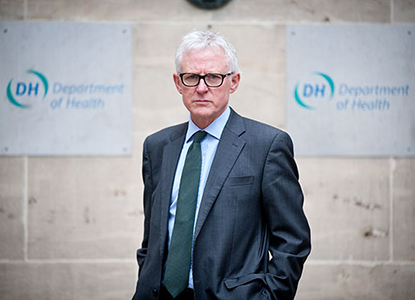By Richard Johnstone | 3 November 2014
Care minister Norman Lamb has revealed that an expanded version of the government’s flagship Better Care Fund will be the likely mechanism to fully integrate health and care spending across the country.

Speaking exclusively to Public Finance, the Liberal Democrat minister said he had set the target to pool all health and care spending by 2018 so there was a date the entire system could prepare for.
‘I want the approach to evolve rather than having anything imposed. The only imposition is to say that we have got to get budgets pooled locally completely, and I’ve talked to a lot of people about this and I think we’ve come up with a neat solution to achieve the pooled budget without a national reorganisation, which nobody wants,’ Lamb said.
‘The Better Care Fund seems to me to be the sensible way of achieving that objective, to progressively increase the extent of the pooling, and as you do that I think you remove the perverse consequences of the gaming across the boundary between the two.’
Plans for the first year of BCF integration, with a minimum of £3.8bn set to be pooled from next April, are being examined by the Department of Health after submission on September 19.
Lamb said he was sure the BCF was ‘here to stay. I don’t think anyone would want to try to dismantle that approach, and your objective should be to expand that as a staging post towards achieving that total pooling.’
However, Lamb said the final models would vary across the country. ‘You say to local areas, “this is the objective, it’s got to be pooled by this date, you set about working out your way of doing it”.
‘I think different models will emerge, and I see no difficulty with that at all, I favour a more permissive NHS where different areas do things differently.
‘Some areas might chose to base it on clinical commissioning groups with local authority representation on that board, some areas may chose to do it under the auspices of the local authority and the health and wellbeing board.’
Lamb also indicated that he expected the amount of funding pooled across the 151 BCF areas in England to be ‘significantly bigger’ than the £3.8bn mandated by ministers.
Responding to Lamb’s comments, a CIPFA spokesman told PF there was now a consensus that health and social care needed to be better integrated if the delivery of both was to remain financially viable in the long term.
‘The development of the Better Care Fund is much welcomed and we must ensure it is a success, but all involved must be honest about the amount of new money involved in the fund and the time taken to make returns on its investments.
‘We must also make sure that we don’t simply put budgets or organisations together without changing the models of care they provide, so performance targets and rules should be minimised in favour of encouraging innovative practice.’
Izzi Seccombe, chair of the Local Government Association’s Community Wellbeing Board, told PF the Better Care Fund was ‘a good start’ to integration, but stated it would be short-sighted to expect it to solve the problems of the health and social care system overnight.
‘It is indisputable that in order to improve the lives of older and vulnerable people in this country there is a need for significant changes to the way that social care is funded,’ she added. ‘A five-year commitment to join up funding between health and social care would provide the certainty and stability required to transform care services for the people who need and rely on them.’
• Lamb was speaking to Public Finance prior to Health Secretary Jeremy Hunt’s announcement that 146 of the 151 Better Care Fund plans had been approved, with £5.3bn of funding had been pooled from NHS and local government budgets.





















